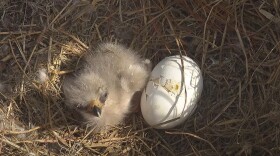The Collier County Board of Commissioners unanimously voted to set an approximate $25 million budget increase for Conservation Collier during the first budget public hearing for the fiscal year 2022.
At the Sep. 9 meeting, Collier County commissioners passed a motion to set Conservation Collier’s new amended budget for 2021-2022 at $25,182,400. This amended budget is nearly a $25 million increase from its 2020-2021 adopted budget of $385,100.
Conservation Collier was created in 2003 after a 2002 voter referendum approved a taxpayer-funded conservation land acquisition program. Conservation Collier’s mission is to preserve native habitats and species and protect the quality of life for citizens and visitors.
This $25.1 million comes into Conservation Collier’s funding. This funding will be allocated into its maintenance and projects.
Although the city commissioners passed Conservation Collier’s motion unanimously, District 5 Commissioner William McDaniel Jr. expressed his concern about the cost impact the program will have on taxpayers.
“I’m not against conservation and Conservation Collier, I am against taxing the people to buy swampland that can’t be developed anyway,” McDaniel said. “I am looking for revisions in the Conservation Collier program that would allow for incentivization to participate in the program.”
According to Conservation Collier’s 2020 referendum, voters approved the referendum which asks if they would like to reestablish a levy of .25 mil ad valorem tax for 10 years to continue to fund the Conservation Collier Program’s acquisition and management of environmentally sensitive lands.
Simply put, if someone owns property with a taxable value of $200,000, their ad valorem tax to fund the program is $50 annually for 10 years.
McDaniel said these revisions allow people to receive the value of their assets and their landholdings.
Conservation Collier’s program director, Summer Araque, shared her thoughts in response to viewpoints such as Commissioner McDaniel’s.
“There’s a trade-off for providing the natural resources to the local community,” Araque said. “If we want to have the lands and manage them for visitors and wildlife, there is a cost that comes along with that.”
Conservation Collier’s 2020 referendum garnered substantial support with 77% of voters approving it.
“We were happy with the results of the referendum,” Araque said. “The way that we see it is we are here to do the work of what the residents and visitors want. Since that is what residents are asking for, we’re going to go out there and do it as a public service.”
According to Araque, approximately $14 million will go into the acquisition of new conservation land.
“We’re currently in an acquisition phase where we have 3,000 acres worth of property that we are looking at,” Araque said.
The board will examine these 3,000 acres in January. In the upcoming months, the program will provide the board with a list of properties for them to decide to buy the properties on the list or hold onto the $14 million.
$3.5 million will go to pay back maintenance funds. Maintenance and land management activities can include invasive plant control, trail maintenance or restoration plantings.
In addition, $6.2 million will go into Conservation Collier’s new reserves. The remaining $2.3 million will get disbursed into other areas.
The program’s initial acquisition phase occurred from 2003 to 2011. After 2011 the organization moved into a preserve management phase. This phase included preserves opening for public access and hosting visitors.
Through the Conservation Collier Program, Collier County citizens own 4,435 acres in 21 different locations according to the program’s website.
Conservation Collier preserves are located mainly in areas such as Golden Gate Estates, the Rural Fringe Mixed Use District and Immokalee.
Araque expressed her thoughts on the importance of programs like Conservation Collier in communities. She explained how an important element is much of the public’s desire to protect green spaces from development.
“We especially saw during COVID visitors went up and people wanted to be recreating outside instead of inside,” Araque said. “Lands are also there for protected species such as panthers.”
This story was produced by Democracy Watch, a news service of Florida Gulf Coast University journalism students. The reporter can be reached at thwatkins18@gmail.com.








